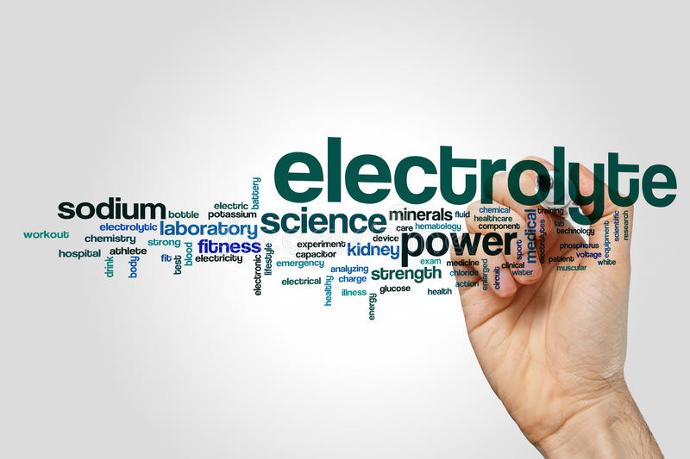Understanding Sodium Electrolytes and Their Role

Electrolytes are essential minerals that help regulate the fluid balance in our body. One such electrolyte is Sodium, which plays a vital role in our overall health. In this article, we will discuss the importance of sodium electrolytes, their role in our body, dietary sources, and the recommended daily intake. We will also cover the symptoms of an electrolyte imbalance and what can happen when we have too little or too much sodium in our bodies.
What are Electrolytes?
Electrolytes are minerals that carry an electric charge when dissolved in water. They play an essential role in the body's overall function and help regulate many bodily functions, including fluid balance, nerve function, and muscle function. The most common electrolytes in our bodies include sodium, potassium, chloride, calcium, and magnesium.
What is Sodium?
Sodium is a mineral that is found in salt, which is composed of sodium chloride. It is an essential electrolyte that helps regulate the fluid balance in our bodies. Sodium is primarily found in the extracellular fluid, which is the fluid outside of cells. It is also responsible for conducting electrical signals in our body, making it crucial for proper nerve and muscle function.
Importance of Sodium Electrolytes
a. Regulation of Blood Pressure:
Sodium plays a crucial role in regulating blood pressure. It works alongside potassium to maintain a healthy blood pressure range. When our blood pressure drops, sodium levels in the body increase, causing the kidneys to retain water and sodium. This process increases blood volume and, in turn, raises blood pressure levels.
b. Maintaining Proper Fluid Balance:
Sodium also helps regulate fluid balance in our bodies. When there is too much sodium in our bloodstream, our bodies retain water to dilute it, increasing fluid volume. On the other hand, when there is too little sodium, our bodies excrete water, causing a decrease in fluid volume.
c. Nerve Function:
Sodium is essential for proper nerve function. It works alongside potassium to create an electrochemical gradient, allowing nerve impulses to travel throughout our bodies.
d. Muscle Function:
Sodium also plays a crucial role in muscle function. It helps our muscles contract and relax properly, allowing us to move and perform physical activities.
Sodium Electrolyte Imbalance
a. Hypernatremia:
Hypernatremia is a condition in which there is too much sodium in our bodies. It can occur due to excessive sodium intake or dehydration. Symptoms of hypernatremia include thirst, confusion, seizures, and coma.
b. Hyponatremia:
Hyponatremia is a condition in which there is too little sodium in our bodies. It can occur due to excessive sweating, vomiting, or drinking too much water. Symptoms of hyponatremia include headache, nausea, confusion, and seizures.
Dietary Sources of Sodium
Sodium is commonly found in processed foods, such as chips, crackers, and canned foods. It is also naturally present in foods like milk, meat, and vegetables. However, most people consume too much sodium, which can lead to health problems like high blood pressure.
How Much Sodium Do We Need?
The recommended daily intake of sodium for adults is between 1,500 and 2,300 milligrams per day. However, most adults consume far more than the recommended amount, with an average intake of around 3,400 milligrams per day. It is essential to monitor our sodium intake, especially if we have high blood pressure or are at risk for heart disease.
Conclusion
Sodium electrolytes are crucial for our overall health and play a vital role in regulating many bodily functions, including fluid balance, nerve function, and muscle function. It is essential to maintain a healthy balance of sodium in our bodies and to monitor our sodium intake, especially if we have high blood pressure or are at risk for heart disease.
FAQs
Can sodium electrolytes be harmful?
While sodium is essential for our overall health, too much or too little can be harmful. It is crucial to maintain a healthy balance of sodium in our bodies.
What are some dietary sources of sodium?
Sodium is commonly found in processed foods, such as chips, crackers, and canned foods. It is also naturally present in foods like milk, meat, and vegetables.
How much sodium should we consume daily?
The recommended daily intake of sodium for adults is between 1,500 and 2,300 milligrams per day.
What are the symptoms of hypernatremia?
Symptoms of hypernatremia include thirst, confusion, seizures, and coma.
What are the symptoms of hyponatremia?
Symptoms of hyponatremia include headache, nausea, confusion, and seizures.






